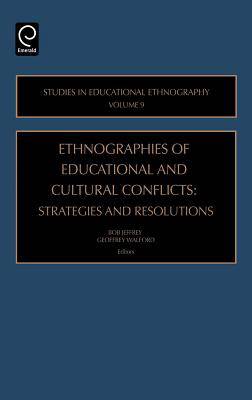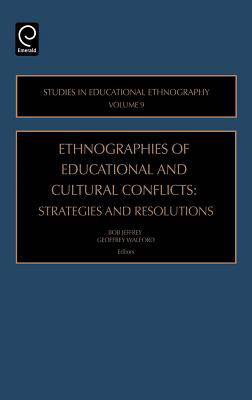
- Afhalen na 1 uur in een winkel met voorraad
- Gratis thuislevering in België vanaf € 30
- Ruim aanbod met 7 miljoen producten
- Afhalen na 1 uur in een winkel met voorraad
- Gratis thuislevering in België vanaf € 30
- Ruim aanbod met 7 miljoen producten
Zoeken
Ethnographies of Education and Cultural Conflicts
Strategies and Resolutions
€ 296,45
+ 592 punten
Omschrijving
National Curricular need to be interpreted in terms of the cultures and experience of learners and adjusted accordingly, for example a literacy and history curriculum needs to include perspectives relevant to the local culture. Teachers, learners, families and communities mediate, appropriate, subvert, and challenge the processes of policy implementation, curriculum engagement and pedagogic practices to make educational experiences more meaningful. These articles exemplify the conflicts, the coping strategies and resolutions adopted by those at the policy implementation interface. Examination of these processes using ethnographic methods identifies and characterises these tensions and provides research findings that can be used to construct lasting solutions that are commensurate with complex situations. The writers in this volume have carried out ethnographies that illuminate educational disjunctions, ambiguities and tensions, agency, strategic action and resolution. Their methodology enables them to show, in detail, how incongruencies arise, how contexts affect interactions, what kind of agency operates, and the circumstances leading to resolutions. Six articles focus on educational inequality, three on identity development and we include three that discuss methodological issues of partisanship in researching equality issues.
Specificaties
Betrokkenen
- Uitgeverij:
Inhoud
- Aantal bladzijden:
- 280
- Taal:
- Engels
- Reeks:
- Reeksnummer:
- nr. 9
Eigenschappen
- Productcode (EAN):
- 9780762311125
- Verschijningsdatum:
- 1/12/2004
- Uitvoering:
- Hardcover
- Formaat:
- Genaaid
- Afmetingen:
- 156 mm x 234 mm
- Gewicht:
- 566 g

Alleen bij Standaard Boekhandel
+ 592 punten op je klantenkaart van Standaard Boekhandel
Beoordelingen
We publiceren alleen reviews die voldoen aan de voorwaarden voor reviews. Bekijk onze voorwaarden voor reviews.










